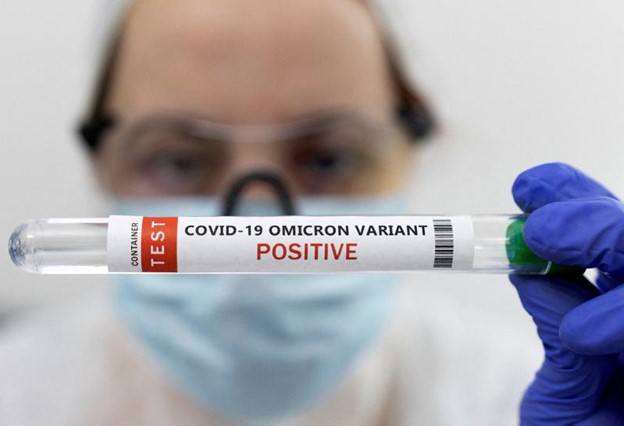Omicron tests positive. (Photo from Reuters)
(We Chinese in America Media Editor Tang Zhao, January 20, 2022) Many public health officials are heartened by early evidence that infections with the Omicron variant tend to cause milder symptoms compared with other types of the new coronavirus, The New York Times reported. But another important question arises whether infection with Omicron, including breakthrough cases among vaccinated people, can lead to long-term Covid-19 (long Covid), a series of physical, neurological, and cognitive symptoms that can last for months and damage daily life.
It's too early for scientists to understand the relationship between Omicron, vaccination, and long-term Covid-19. Early research in the outbreak did not yield clear clues. Here's what scientists have learned, and many questions that remain to be answered.
Will Omicron cause long-term Covid-19?
Since the Omicron variant was first identified at the end of November last year, it is too early to say how long the infection symptoms will last. It's unclear if the virus, like previous versions of the virus, suffers from problems like brain fog or extreme fatigue after the infection is resolved.
Although recent reports suggest that the initial disease caused by Omicron may be less severe than other mutant strains, the underlying symptoms of infection are like those of other mutant strains, suggesting that long-term effects may also be similar.
Doctors, researchers, and patient-led groups have warned that a milder initial disease does not necessarily mean Omicron is less likely to cause long-term Covid-19. Studies of early outbreaks have shown that many initially mild or asymptomatic individuals with COVID-19 later develop long-term COVID-19 that persists for months.
Can a vaccine prevent long-term COVID -19?
Maybe.
Vaccines are primarily designed to prevent people from becoming seriously ill or dying from the new coronavirus. For some of the previous variants, vaccines appear to reduce the likelihood of infection itself — of course, not getting infected is the best way to avoid long-term Covid-19. But vaccines are not as effective at preventing Omicron infections, and breakthrough infections with this new variant are far more common.
So far, studies of vaccinated and long-term Covid-19 have focused on data collected before the Delta virus variant emerged. The findings were mixed.
(Source: Compiled from Online Information)
